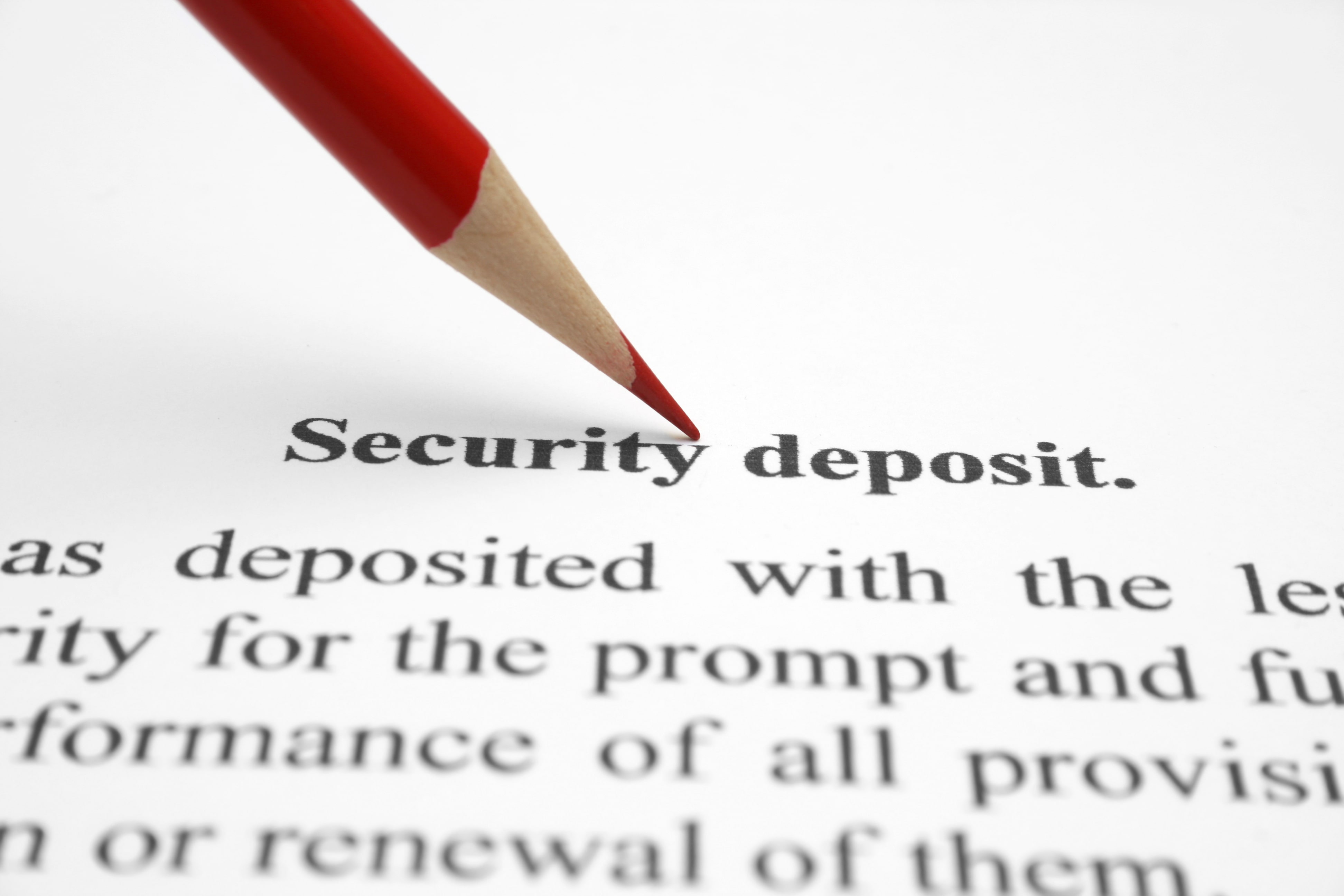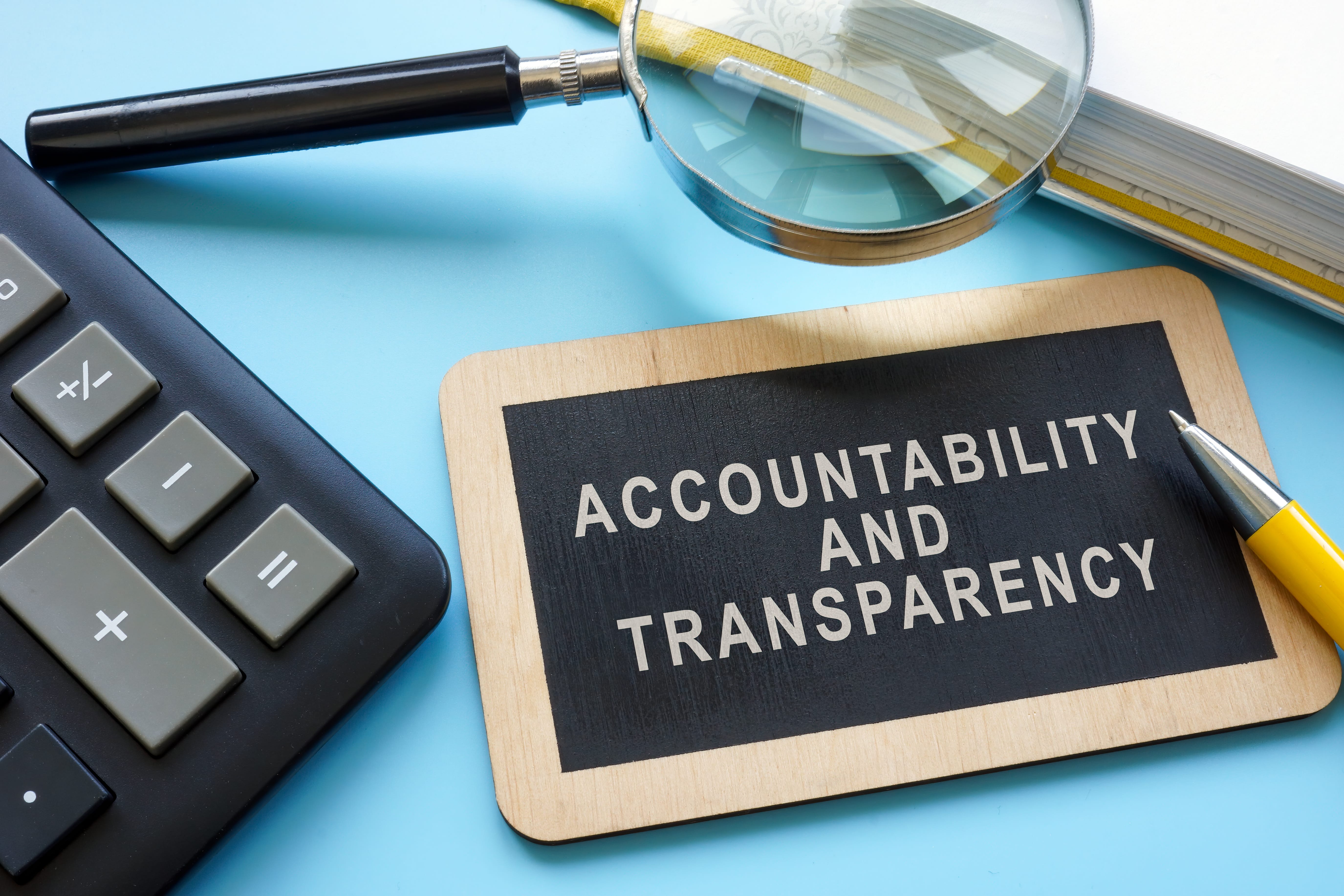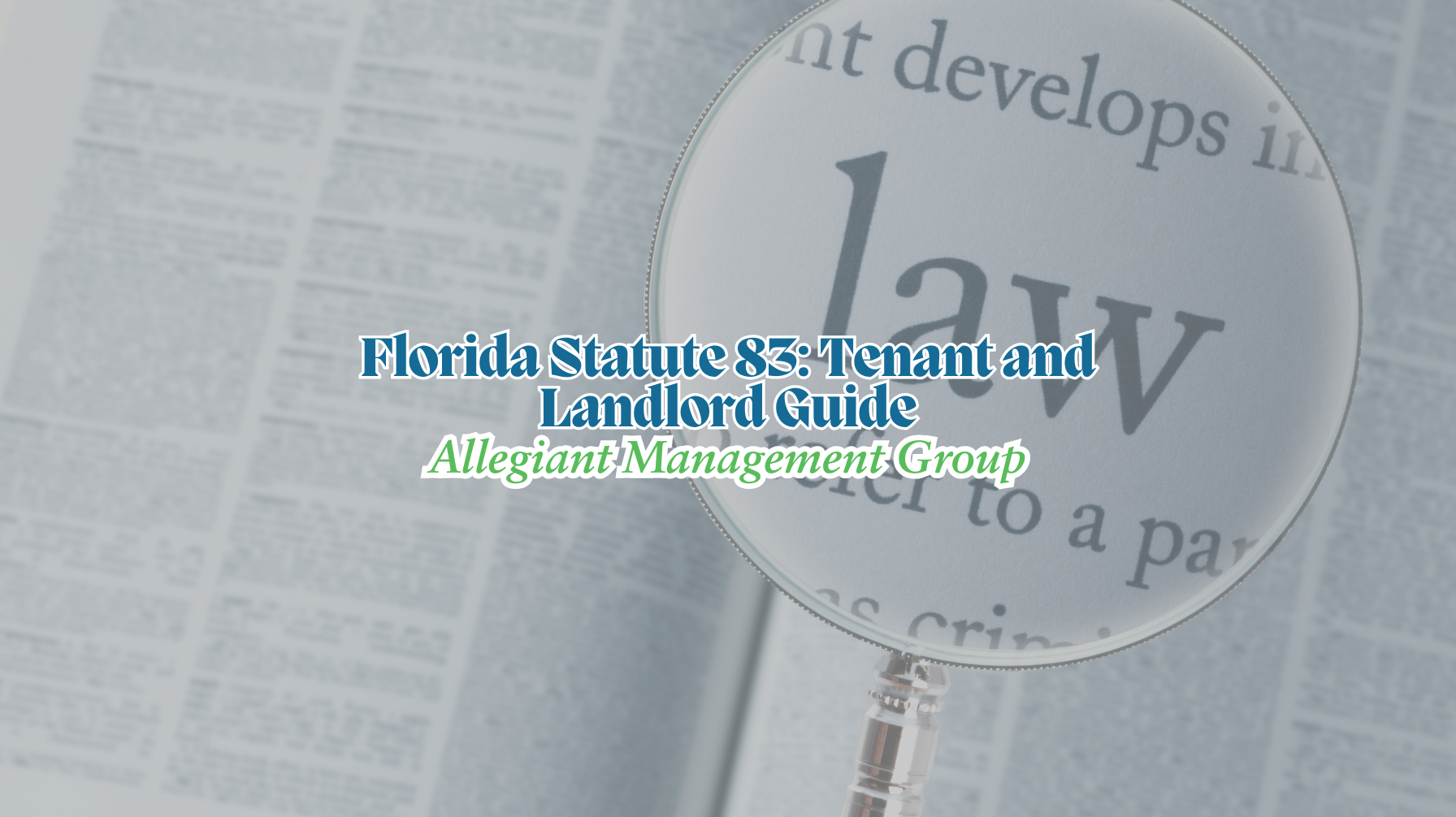Understanding Florida Statute 83: A Guide for Tenants and Landlords
Florida Statute 83 is the Florida Residential Landlord and Tenant Act. These set of state laws serves as the foundational law governing rental relationships in the state.
Knowledge of the law is imperative for both landlords and tenants. This helps to protect each from exposure.
This statute covers the following in regards to tenancies:
- Rights and Responsibilities of Landlords and Tenants
- Obligations to maintain the premises.
- Procedural requirements for both tenants and landlords.
The Florida landlord tenant law creates a legal framework that supports fairness and transparency in residential dwelling unit rental situations.
Landlords and tenants should follow the laws provided to stay compliant.

Key Sections of Florida Statute 83
1. Overview of Florida Statute Chapter 83
This statute is essential in defining key rental practices, covering areas like security deposits, rental application, payment protocols, maintenance standards, and tenant privacy rights.
It sets out clear obligations for both landlords and tenants, promoting lawful and fair rental practices in Florida.
The statute also addresses less common issues. Handling disputes over damages to the property. The recourse tenants have if landlords fail to meet obligations.
Legal Obligations: Statute 83 lays out specific requirements for landlords and tenants, ensuring each party understands their responsibilities.
In Florida, a dwelling unit is defined as a single unit providing complete, independent living facilities for one or more persons, including permanent provisions for living, sleeping, eating, cooking, and sanitation.
2. Security Deposits and Handling (Section 83.49)
Security deposits are a common source of confusion. The landlord tenant law Florida dictates how landlords must handle these funds.
The state requirements tenant protection and landlord accountability. When a tenant moves out of the property the clock starts for the landlord.
- Security Deposit Account: All Landlords must place deposit funds in a separate, interest-bearing or non-interest-bearing escrow accounts. The landlord must notify tenants in writing of its location within 30 days (usually within the rental agreement). Accounts paying interest must be disclosed to all parties by written notice. We recommend disclosing in the terms of the lease when tenants sign the lease.
- Amount of Security Deposit: There is no limit to the amount of tenant security deposit you can charge. The industry standard is two times the monthly rent, but can be higher depending on risk associated with the tenant.
- Location of Deposit: Failing to notify tenants in a timely manner may open the landlord to legal challenges. Tenants can pursue claims if someone mishandles their deposits.
- Security Deposit Return: Landlords must return the security deposit ti the tenant within 15 days. Landlords have up to 30 days to impose a claim on the deposit for any deductions. This process protects tenants from unwarranted charges. This practice is for transparency.

3. Rights and Duties of Tenants and Landlords (Sections 83.51 and Section 83.53)
Both landlords and tenants share responsibilities to maintain a safe and functional living environment.
Maintenance Standards (83.51): Landlords must ensure the rental dwelling meets local health and safety codes. Tenants must keep the property clean and avoid damage beyond normal wear and tear.
Tenants also have a responsibility to promptly report any issues that could affect property condition or tenant safety. Tenants can file a complaint with code-enforcement should landlord not address issues promptly.
Privacy and Entry Rights (83.53): Landlords must give at least 12 hours’ notice before entering a tenant’s unit.
Unless it’s an emergency or they receive tenant consent. Tenants can refuse entry if they feel that the landlord is violating privacy rights without a valid reason.

4. Rent Payment, Late Fees, and Lease Termination (Section 83.56)
Florida law provides guidance on paying rent, late fees, and lease termination, offering clarity on these critical aspects. If a tenant fail to pay rent on-time, the owner is allowed to charge a late fee.
1. Late Fees: If a lease specifies late fees, they must be reasonable and reflect any limits under Florida law. This helps tenants avoid unexpected costs. A written agreement is crucial for transparency.
Tenants should carefully review any late fee clauses in their lease agreements to understand the consequences of late payment. Owners must comply with the outlined agreement on late fees in the lease agreement when it comes to unpaid rent.
2. Lease Termination: For month-to-month leases, a 15-day notice is required. For annual leases, the law requires a 60 day notice.
The lease termination process aims to ensure a smooth transition, allowing both parties ample time to make alternate arrangements.
Federal Law and the CARES Act may require up to 30-day notice for CARES Act covered properties. Not complying could result in legal action.

5. Eviction Procedures and Tenant Protections (Section 83.56)
Evictions are a legal process that landlords must be conduct in compliance with Florida law.
1. Eviction Process: Florida law strictly prohibits self help eviction Florida methods, such as changing locks. Landlords must follow a formal court-ordered eviction process. This prevents landlords from using forceful or unfair means to remove tenants.
Observing due process. This may seem like a good idea in the short term, but do not attempt.
2. Tenant Protections: The law protects tenants from landlords who retaliate. This includes actions like reporting unsafe conditions or code violations.
Tenants who experience unfair evictions can report these cases to legal aid services for further assistance.
6. Compliance Tips for Property Managers and Landlords
Property managers can stay compliant with rules and regulations of Florida Statute 83 by following these best practices:
1. Documentation: Keeping detailed records of all transactions, communications, and repairs is crucial for preventing disputes. Consistent documentation also provides valuable proof should disagreements arise.
2. Update Lease Agreements: Regularly update lease terms to reflect any new legal standards and ensure compliance with Florida law.
3. Maintain Open Communication: Having a structured communication plan fosters positive tenant relationships and minimizes issues. Open communication also encourages tenants to report maintenance needs promptly.

7. Emerging Rental Laws in Florida and Their Impact
Recent changes in Florida’s rental laws emphasize transparency and tenant protection.
1. Squatters' Law 2024: Aims to expedite the removal of unauthorized occupants. Providing clarity on Adverse Possession law Florida guidelines.
2. Tenant Screening Practices: Landlords should stay informed about allowable screening processes to avoid legal disputes with prospective tenants.
3. Lead Paint Compliance: For properties built before 1978, landlords must follow EPA lead-safe practices to protect tenant health.

Checklist for Tenants & Landlords
Staying informed is key to a smooth landlord-tenant relationship. Follow these essential tips for landlords and tenants under Florida Statute 83 landlord tenant law.
Take it from the experts and remember these top tips to stay compliant.
Checklist for Tenants Under Florida Statute 83
☑️ Understand Your Lease Agreement: Review all terms, ensuring they align with Florida law and local laws. Make sure you have a full understanding of all terms before signing the agreement. The lease becomes enforce when signed by all parties.
☑️ Document Condition: Document the property’s condition on the move-in date with a move-in checklist. Send a copy of your report to your landlord, and keep a copy for yourself.
☑️ Security Deposit Notice: Landlords must provide written confirmation of where they are holding your security deposit within 30 days. Not doing so is a violation of the law.
☑️ Property Maintenance: Maintain cleanliness and report issues to the landlord in writing immediately to preserve the property.
☑️ Privacy Awareness: Stay informed of your privacy rights and landlord right of entry requirements. Landlords must provide a minimum of 12-hours notice to enter.
☑️ Track Rent Payments: Ensure timely payments and document any late fees or adjustments. Make payments via trackable and traceable funds.
☑️ Security Deposit Disputes: Challenge security deposit claims in writing if necessary. We recommend sending via Certified mail to document delivery. As a secondary, send your dispute by email to your landlord.
Checklist for Landlords Under Florida Statute 83
☑️Draft a Legal Lease Agreement: Ensure compliance with Florida standards for transparency and fairness. We recommend an attorney-prepared lease agreement. Drafting an agreement in the State of Florida without being a attorney, is considered unlicensed practice of law.
☑️Proper Security Deposit Management: Place funds in a separate Florida-based bank account. Notify the tenants within 30 days as required the location of the deposit. Also note if it is interest bearing or non-interest baring account.
☑️Maintain Property Standards: Regularly inspect and maintain properties to meet health codes and preserve the property.
☑️ Observe Privacy Protocols: Always provide notice before entry, respecting tenant privacy rights. Following the minimum 12-hour notice requirement.
☑️ Follow Formal Eviction Procedures: Follow eviction process carefully and avoid self-help eviction tactics, instead adhering to legal protocols. Consult an attorney for specialized advice.

Seek Out An Expert
Are you in need of expert property management services? Are you looking for someone to screen and do background checks, post notices? Look no further than Allegiant Management Group.
Our experienced team is here to help you navigate Florida’s complex rental laws, ensuring full compliance while protecting your investment.
We’re dedicated to fostering positive, respectful relationships between landlords and tenants, creating a safe and hassle-free rental experience for everyone.
Contact Allegiant Management Group today to discover how we can simplify property management and support your success.
Frequently Asked Questions (FAQs): Florida Landlord-Tenant Law (Chapter 83)
Can a landlord enter my unit without notice?
In Florida, a landlord must give at least 12 hours’ notice before entering a rental unit, except in emergencies. Entry is allowed for inspections, repairs, or showing the unit to prospective tenants or buyers. Florida law (Fla. Stat. § 83.53) governs these rules.
What if my landlord does not make essential repairs to my rental property?
If a landlord fails to make essential repairs, notify them in writing and allow a reasonable time for fixes. In Florida, tenants can withhold rent or terminate the lease under Fla. Stat. § 83.56 if repairs aren’t made. Local laws may provide additional remedies.
Can I dispute an eviction notice once i receive it?
Yes, you can dispute an eviction notice by filing a response in court before the deadline, usually within 5-10 days. Common defenses include improper notice, landlord retaliation, or uninhabitable conditions. Consult local tenant laws and consider legal assistance for the best defense.
How long does my landlord have to return my security deposit?
A landlord must return a security deposit within 14 to 30 days, depending on state laws. Any deductions for damages must be itemized in writing. If not returned on time, tenants can take legal action to recover the amount, including filing a claim in small claims court.
Can a tenant withhold rent for repairs?
In many states, tenants can withhold rent if a landlord fails to make essential repairs. Florida law (Chapter 83) requires tenants to give 7 days’ written notice before withholding rent. Laws vary, so check local regulations to ensure compliance.
How much notice is required to terminate a month-to-month lease?
Notice requirements for terminating a month-to-month lease vary by state. In Florida, either party must give 30 days’ notice before the next rental period. Other states may require 30 to 60 days’ notice, so check local laws for specific rules.
Can a landlord evict a tenant without notice?
No, a landlord cannot evict a tenant without notice. In Florida, a 3-day notice is required for nonpayment of rent, and a 7-day notice for lease violations. Formal eviction requires a court process. Laws vary, so check local regulations.
Video: Understanding Florida Statute 83: Landlord & Tenant Act
Disclaimer: This article is for information purposes only and does not constitute legal advice. For specific concerns regarding Florida Statute 83 or rental laws, consult a qualified legal professional.
Blog Updated: 03/09/2025



